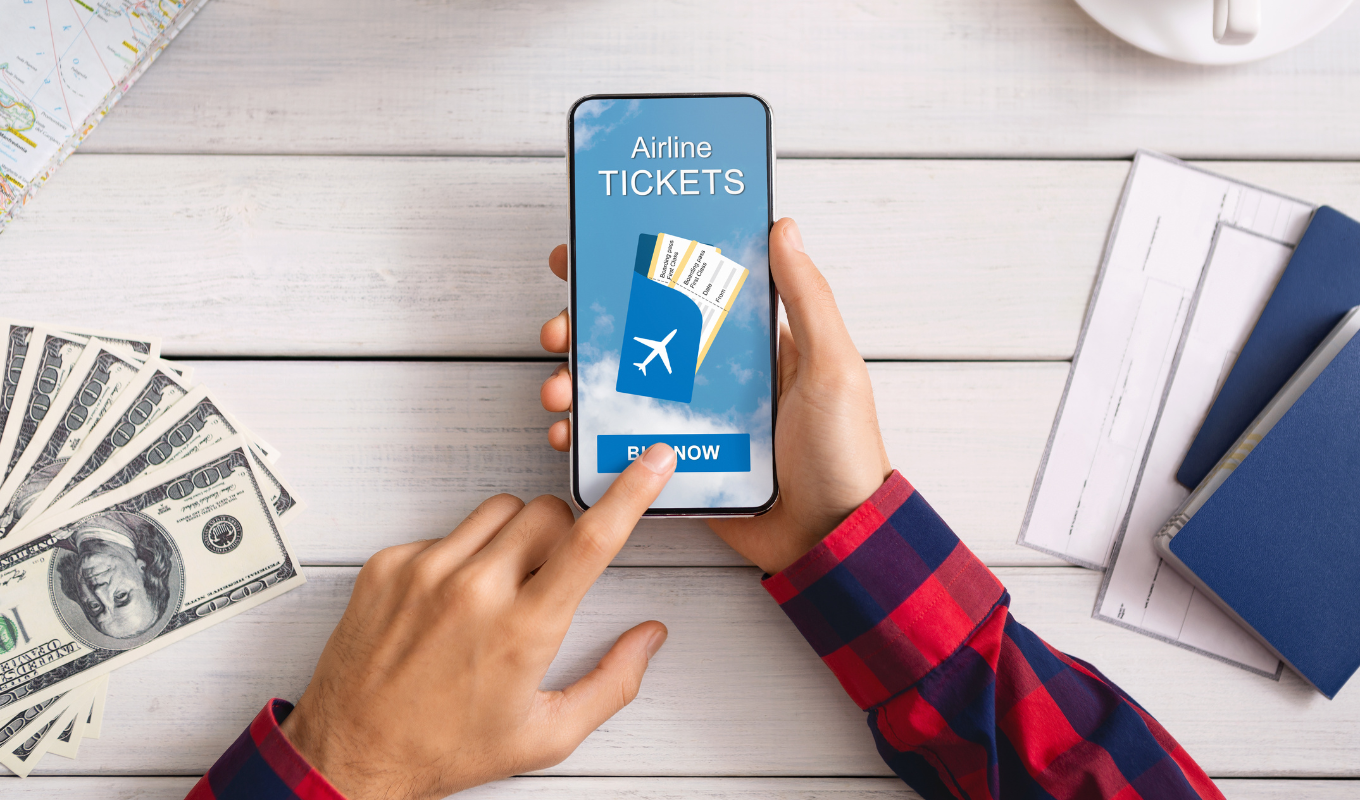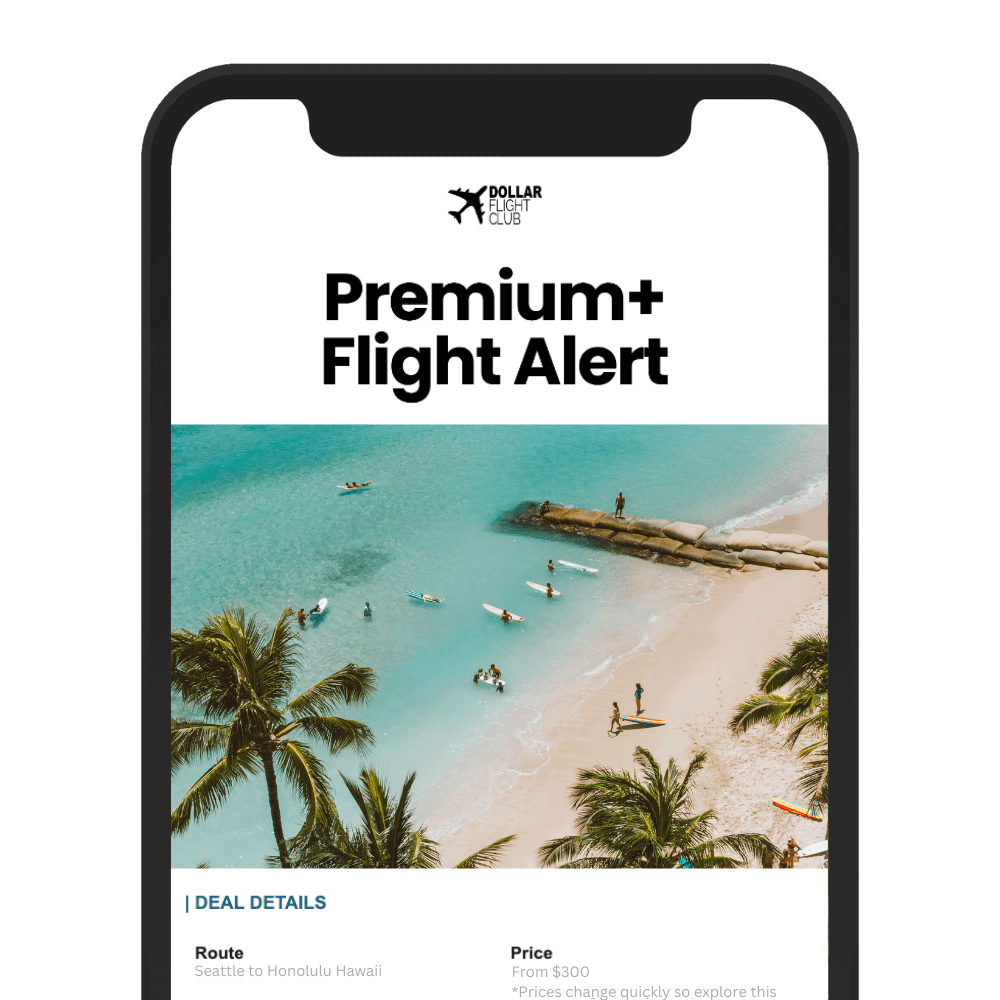Flying can cost a lot more than you think. Airlines often advertise low fares, but hidden fees can add hundreds of dollars to your ticket price. These fees, like baggage charges, seat selection, and booking costs, now account for over 20% of airline revenue. Here’s what you need to know:
- Baggage Fees: Checked bags cost $30–$35, but overweight bags can reach $450.
- Seat Selection: Fees range from $25–$100 per flight segment, with extra legroom seats costing up to $319.
- Booking Fees: Airlines like Spirit and Frontier charge up to $22.99 for online bookings.
- Mandatory Taxes: Federal taxes and fees can add $15–$30 to your ticket.
To save money, compare total costs (not just base fares), prepay for baggage, and use airline loyalty programs or travel credit cards. Tools like Google Flights or Dollar Flight Club can also help you find better deals. By planning carefully, you can avoid surprises and keep your travel budget in check.
Base Fares vs. Extra Charges
When you buy a plane ticket, the base fare is just the starting point. Additional mandatory government fees quickly add to the cost:
- Federal excise tax: 7.5% on all domestic flights
- Flight segment tax: $4.20 per segment
- September 11th Security Fee: $5.60 per one-way trip
- Passenger Facility Charge: Up to $4.50 per airport
By law, the U.S. Department of Transportation requires these fees to be included in the advertised price. But beyond these unavoidable charges, airlines use dynamic pricing to tack on extra costs for additional services.
Fuel Charges and Extra Costs
Airlines also “unbundle” their services, meaning that many perks that used to come with a ticket now cost extra. This strategy has been incredibly lucrative – just in 2023, the top 10 global airlines earned $54.1 billion from these additional fees.
Here are some common extra charges:
| Fee Type | Typical Range | Notes |
|---|---|---|
| First Checked Bag | $35–89 | Spirit’s fees ranged from $10 to $89.21 in 2023 |
| Extra Legroom | $140–319 | United charges up to $319; Delta’s fees range from $140 to $264 |
| Seat Selection | Varies | Choosing your seat can significantly affect the total cost |
| Reservation Changes | Variable | U.S. airlines earned $2.38 billion from change fees alone |
Dynamic pricing means these fees can vary widely. For example, Frontier’s first checked bag fee can range anywhere from $0 to $138, depending on the flight. Full-service airlines generally include more amenities in their base fares compared to budget airlines. However, while budget carriers may advertise lower base fares, the extensive extra fees can sometimes make them pricier than traditional airlines when everything is added up.
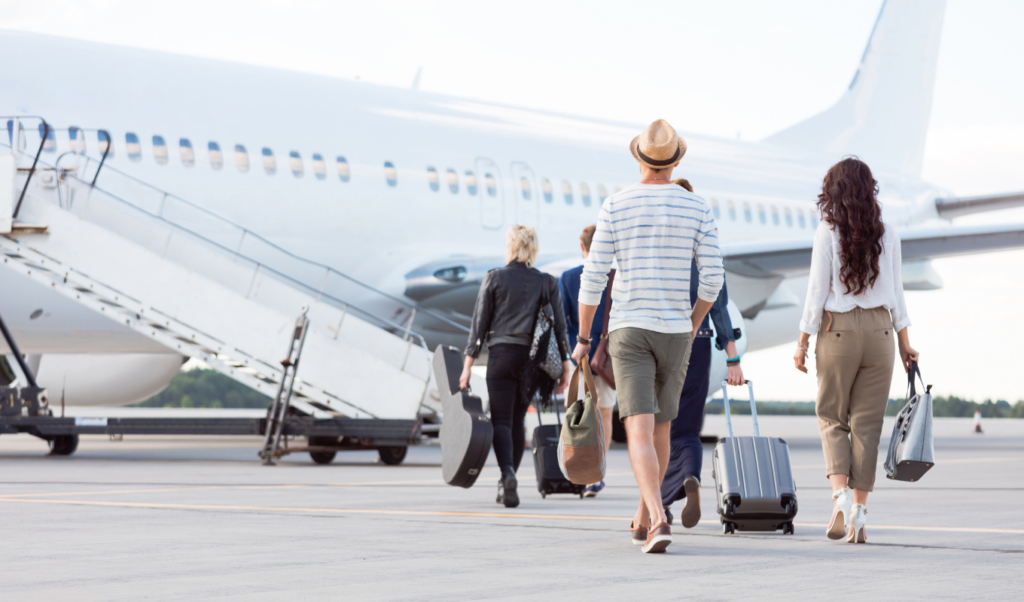
Most Common Hidden Fees
When you’re comparing flight prices, understanding hidden fees can make a huge difference. In 2021, U.S. airlines raked in over $5.3 billion just from baggage fees, with these extra charges contributing to more than 20% of their total revenue.
Luggage Fees
Baggage fees differ depending on the airline and route. For domestic flights, checking your first bag usually costs between $30 and $35. But if your bag is overweight, you could end up paying anywhere from $100 to $450 per bag for each leg of your trip.
| Baggage Type | Typical Cost Range | Notable Exceptions |
|---|---|---|
| First Checked Bag | $30–$35 | Southwest (Free) |
| Overweight Baggage | $100–$450 | Varies by airline |
In addition to baggage charges, airlines have also found ways to earn more by charging for seat selection.
Seat Assignment Fees
Choosing your seat has become another big moneymaker for airlines, bringing in $4.2 billion in fees last year alone. Prices depend on the type of seat you select:
- Standard Seats: $25–$100 per flight segment
- Exit Row: Around $48 on average
- Back Row: About $18 on average
- Extra Legroom: As much as $160 on international flights
And the fees don’t stop there – airlines also tack on extra charges for certain booking methods.
Reservation and Payment Fees
Booking and payment options often come with hidden costs that can add up quickly:
- Online Booking Fees:
- Allegiant: $18 each way (labeled as “Electronic Carrier Usage Charge”)
- Frontier: $4–$21 each way (“Carrier Interface Charge”)
- Spirit: Up to $22.99 each way (“Passenger Usage Charge”)
If you prefer to book by phone, expect to pay up to $25 per ticket with airlines like United. On the other hand, Delta doesn’t charge for phone bookings.
To avoid some of these fees, you might want to book directly at the airport ticket counter. This trick works especially well for airlines like Allegiant, Frontier, and Spirit. Just keep in mind that certain special fares or discounts might not be available when booking in person.
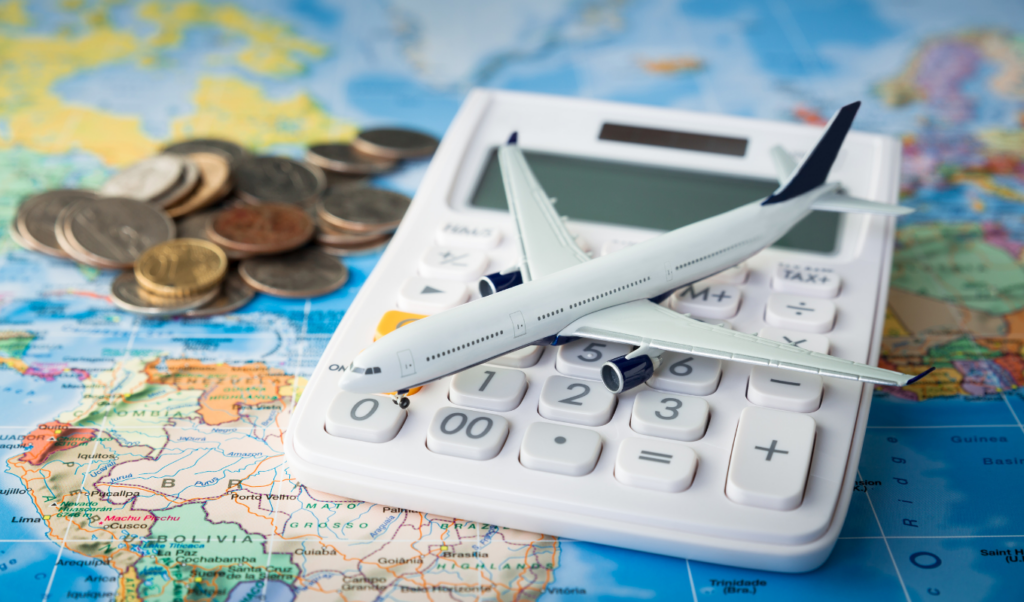
Finding the Total Flight Cost
When booking a flight, understanding the total cost is essential – hidden fees can quickly inflate what seems like a great deal. Research shows these extra charges can significantly impact ticket prices.
Price Calculation Tools
Google Flights is a handy resource for comparing flight options. While it might not catch every hidden fee, it does a good job of compiling fare data and highlighting many additional charges.
Here’s a breakdown of common fees you might encounter:
| Fee Type | Pre-booking Cost | Airport Cost |
|---|---|---|
| Carry-on Bag | $20–30 | Up to $60 |
| Checked Bag | $30 | Up to $65 |
| Seat Selection | $5–25 per seat | N/A |
| Airport Check-in | N/A | $30–35 |
| Boarding Pass Print | N/A | $20 |
To get an accurate picture of your total flight cost, you’ll need to factor in all these fees and compare options carefully.
Complete Price Comparison Methods
To avoid surprises, follow these steps to calculate the full cost of your flight:
- Start with the Base Fare and Taxes
Begin with the advertised ticket price. Then, add mandatory taxes and fees, which can sometimes add as much as $200. Don’t forget to include payment processing fees, which usually range from 1–3% of the total. - Include Required Fees and Extras
Factor in fees that apply to your specific trip, such as:- Baggage (carry-on or checked)
- Seat selection
- Payment method charges
- Airport check-in fees
If you plan to use any optional services – like in-flight amenities – be sure to account for those as well. For frequent travelers, tools like Dollar Flight Club can help simplify this process by sending alerts for discounted flights that already account for many of these fees.
Thanks to updated Department of Transportation (DOT) regulations, airlines must now disclose fees for checked bags, carry-ons, and reservation changes upfront. This new transparency is expected to save consumers over $500 million annually. It’s also a step forward in helping travelers calculate their total costs before booking.
Keep in mind that while budget airlines often advertise lower base fares, their add-on fees can be significantly higher than those of full-service carriers. For instance, Southwest Airlines includes two free checked bags, while other airlines may start charging $35 for the first bag. Always weigh these factors when comparing ticket prices.
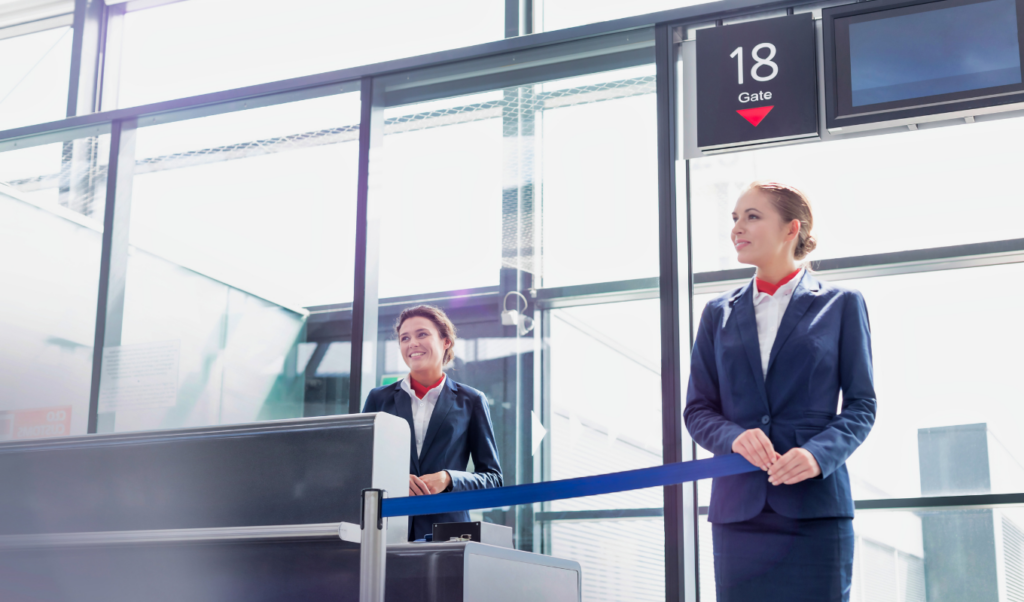
Ways to Lower Hidden Fees
In the first three quarters of 2023, travelers shelled out a staggering $5.5 billion on checked bag fees. Thankfully, there are practical ways to reduce these costs without sacrificing convenience.
Benefits of Airline Programs
Airline loyalty programs and co-branded credit cards can be a game-changer when it comes to avoiding fees. Many of these programs offer perks such as free checked bags, priority boarding, and even complimentary seat selection.
Smart Booking Methods
Checked bag fees have been creeping up, with domestic luggage fees increasing by an average of $5 since May 2025. However, there are ways to work around these hikes.
Here are some strategies to keep in mind:
- Book directly with airlines: While price comparison tools are helpful, always check the airline’s website to get a clear breakdown of fees.
- Prepay for baggage: Many airlines offer discounts when you pay for your bags in advance, often saving $5–10 per bag.
- Consider gate checking: On full flights, airlines sometimes allow free gate checking for carry-on bags.
- Take advantage of military discounts: Eligible military personnel often qualify for waived baggage fees.
In addition to these tips, setting up automated alerts can help you stay informed about fee policies and changes.
Dollar Flight Club Deal Alerts
Another way to save is by using services like Dollar Flight Club, which sends members alerts about discounted flights. These alerts include details on flash sales, price drops, and other opportunities for significant savings.
Members can save up to 90% on flights, with clear information on baggage allowances and seat selection included.

Conclusion: Making Better Flight Choices
Key Takeaways
Hidden fees are a massive revenue source for airlines, with the top 10 global carriers raking in $54.1 billion in ancillary revenue in 2023 alone. This pricing model, especially prevalent among budget airlines, often disguises the true cost of a ticket behind low base fares. For example, while Spirit Airlines is known for its steep hidden fees, American Airlines tends to be more upfront about costs.
With this knowledge in hand, you can take actionable steps to keep your travel expenses in check.
Tips for Saving on Flights
Hidden fees and rising ticket prices can make air travel expensive, but these strategies can help you save:
Choose the Right Travel Days: Flying midweek (Monday through Wednesday) can save you between 13% and 20% compared to weekend flights. Similarly, flights departing on Thursdays can be up to 17% cheaper than those on Sundays.
Book Smart: Bundling flights with hotel bookings can save an average of $240. Opting for flights with layovers instead of non-stop options can also cut costs by about 25%.
Cut Down on Extra Fees:
- Pack only the essentials to avoid baggage fees.
- Skip optional seat selection fees.
- Take advantage of airline loyalty programs or travel credit cards.
- Book directly with airlines to avoid third-party charges.
A Senate report highlighted that five major U.S. airlines made $12 billion from seat and baggage fees between 2018 and 2023. By understanding these charges and planning your travel wisely, you can make better decisions and reduce your overall flight costs.
For even more savings, Dollar Flight Club members can access deal alerts that offer flights at up to 90% off, making it easier to monitor fares and book smarter.
FAQs
How can I compare flight prices to make sure all hidden fees are included?
To get a clear picture of flight prices, always consider the total cost instead of just the base fare. Many airlines, especially budget ones, tack on extra fees for things like checked bags, seat selection, priority boarding, or even in-flight meals. Carefully review the airline’s fee structure before booking so you’re not caught off guard by unexpected charges.
When browsing for flights, rely on tools or platforms that show the full price, including all those extra fees. This makes it easier to compare options and understand the true cost. Another tip? Sign up for fare alerts. These can help you track price fluctuations and snag a deal at the right time, saving you money on both the ticket and those hidden fees.
If you’re a frequent flyer, services like Dollar Flight Club can be a game-changer. Members get alerts for deeply discounted flights – sometimes up to 90% off – making it easier to find affordable options while staying informed about the total cost.
How can I avoid or reduce baggage fees when flying?
To cut down on baggage fees, your best bet is to stick with carry-on luggage whenever you can. Most airlines charge extra for checked bags, so traveling light can save you money. If you do need to check a bag, look for airlines that include free checked bags in their policies – this is often a perk if you hold a co-branded credit card with the airline.
Joining a frequent flyer program is another smart move. Many programs offer perks like free checked bags or discounts for loyal travelers. Also, keep an eye on your bag’s weight. Overweight luggage can rack up hefty fees, so pack strategically to stay under the weight limit. Lastly, take a moment to review the airline’s baggage policy before booking your flight. Knowing the rules ahead of time can help you avoid unexpected costs.
Do airline loyalty programs or credit cards help save on extra travel fees?
Many airline loyalty programs and co-branded credit cards can help cut down on those pesky extra travel fees. For instance, some airline credit cards include perks like free checked bags – not just for you but also for your travel companions. That alone could save you $30 to $60 per bag on every flight. On top of that, frequent flyer programs often waive seat selection fees and offer priority boarding, making your trip smoother and a bit easier on your wallet.
If you’re someone who travels frequently, these programs and credit cards can make a noticeable dent in your travel expenses, especially when it comes to things like baggage fees and premium services.

